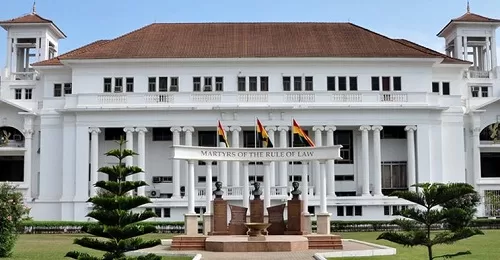The Supreme Court of Ghana has made a landmark ruling, upholding the constitutionality of the criminal law against unnatural carnal knowledge of another person aged 16 years or older. In a unanimous decision, the court dismissed the challenge brought by Dr. Obiri-Korang of the University of Ghana School of Law, who argued that the law was unconstitutional.
Dr. Obiri-Korang contended that Section 104(1)(b) of the Criminal and Offences Act 1960 (Act 29) breached the rights of privacy, non-discrimination, and liberties of a person, as enshrined in Articles 18(2), 17(2), and 14(1) of the Constitution.
However, the Supreme Court disagreed, ruling that the provision does not contravene the Constitution. The court’s decision was delivered by Justice Baffoe-Bonnie J.S.C, with six other justices concurring. The contested provision, Section 104(1)(b) of Act 29, states that a person who has unnatural carnal knowledge of another person aged 16 years or older with their consent commits a misdemeanour.
Dr. Obiri-Korang had argued that this provision was unconstitutional, but the Supreme Court upheld its validity. The ruling affirms the existing criminal law against unnatural carnal knowledge, providing clarity and certainty on the matter.
The Supreme Court’s decision is final and binding, and it sets a precedent for future cases involving similar challenges to the constitutionality of laws. The ruling demonstrates the court’s commitment to upholding the Constitution and ensuring that laws align with its provisions.




